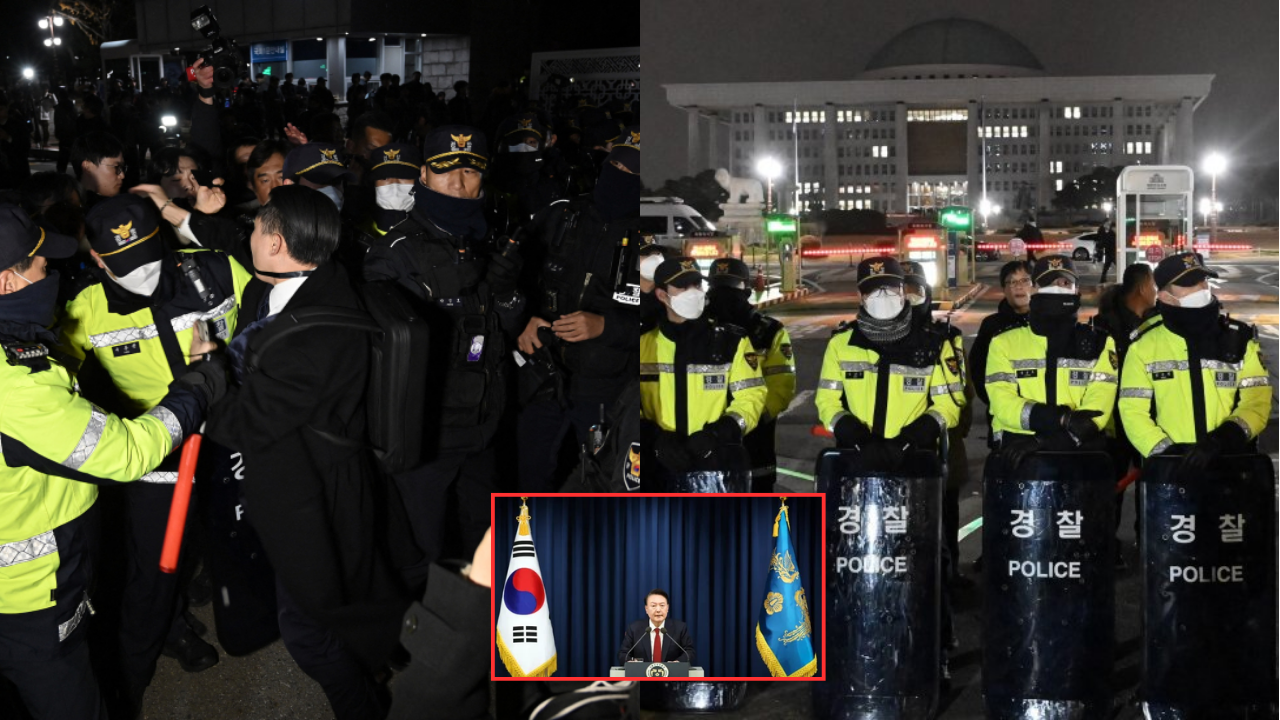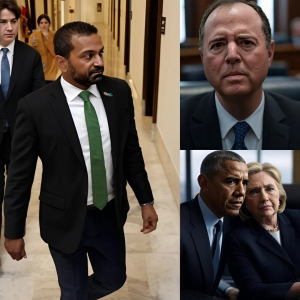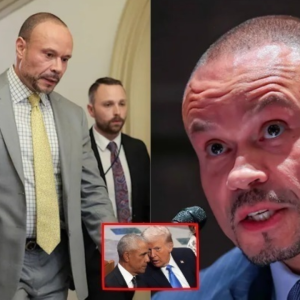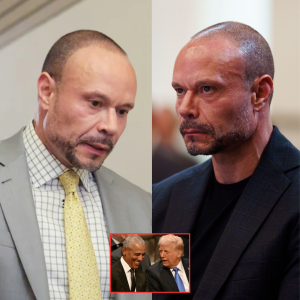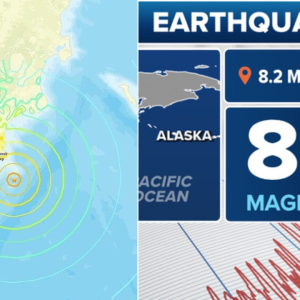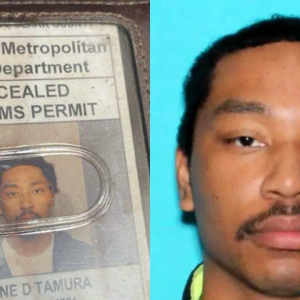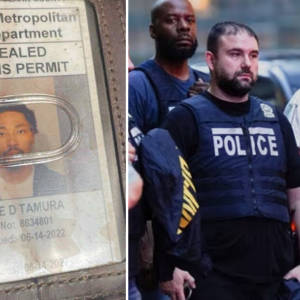By declaring martial law, President Yoon seemed to want to use military force to suppress the opposition that was increasing political pressure on him, but this calculation failed.
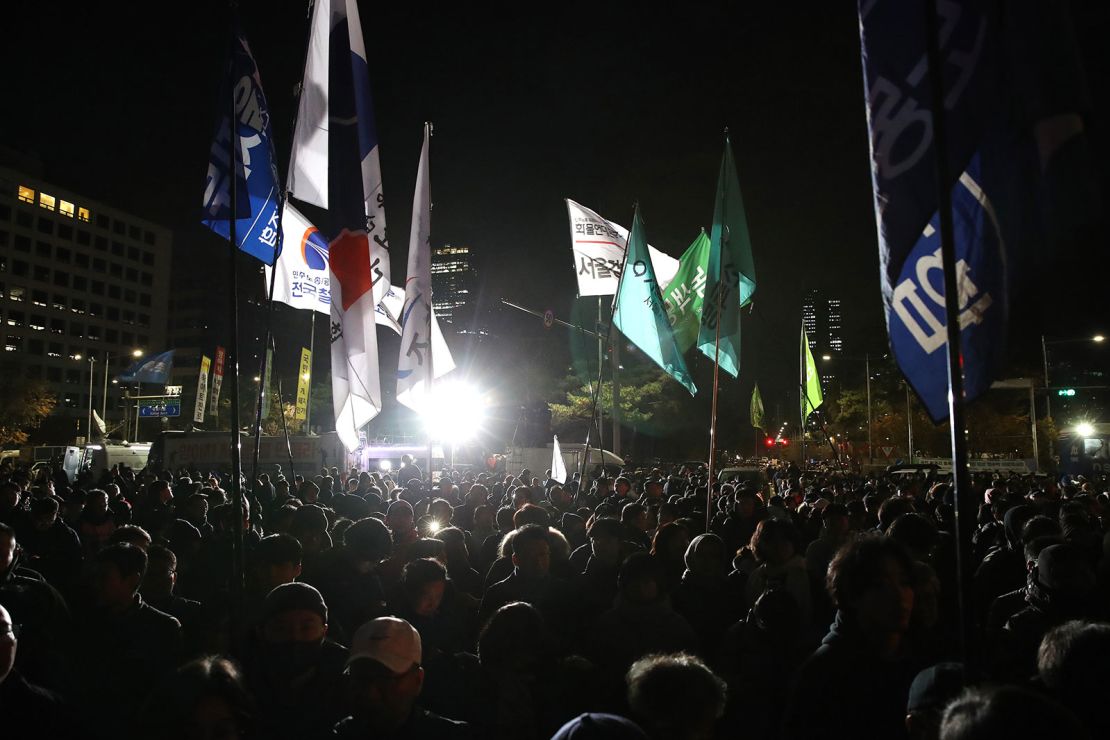
South Korea has been plunged into a serious political crisis after President Yoon Suk-yeol unexpectedly declared martial law on television on the night of December 3. Yoon’s move shocked even his allies in the ruling People Power Party (PPP), was harshly criticized by the country’s parliament and sparked protests on the streets of Seoul overnight.
“Through martial law, I will rebuild and protect the free Republic of Korea that is falling into the abyss of destruction. I will eliminate anti-state forces as quickly as possible and normalize the country,” he said, calling on people to endure “some inconveniences”.

South Korean President Yoon Suk-yeol speaks during a press conference in Seoul in May 2022. Photo: Reuters
But on the morning of December 4, President Yoon announced that he had agreed to lift martial law after the National Assembly held an emergency meeting in the early hours of the morning and passed a resolution asking him to do so. The last time martial law was declared in South Korea was in 1979, when President Park Chung-hee was assassinated in a coup.
President Yoon only gave a rather general explanation for his decision to impose martial law, even mentioning the “threat from North Korea” without providing any specific evidence.

According to observers, the big reasons Mr. Yoon gave such as “eliminating anti-state, pro-North Korea forces, as well as protecting the free constitutional order” seemed to be only to cover up the fact that the South Korean President declared martial law to relieve the growing political pressure on him.
President Yoon is beset by a series of political troubles, from a sharp drop in public support, deadlock in policymaking efforts to his wife being investigated for allegedly accepting a bribe in the form of a designer handbag.

“This decision probably stems largely from Mr. Yoon’s motivation to overcome growing domestic political difficulties and confront what he sees as the opposition party’s attempt to overthrow him,” said James Park, an expert at the East Asia Program at the US-based Quincy Institute.
South Koreans have recently expressed discontent with President Yoon’s leadership. His approval rating has fallen to 20% for months, recently hitting a record low of 17%.
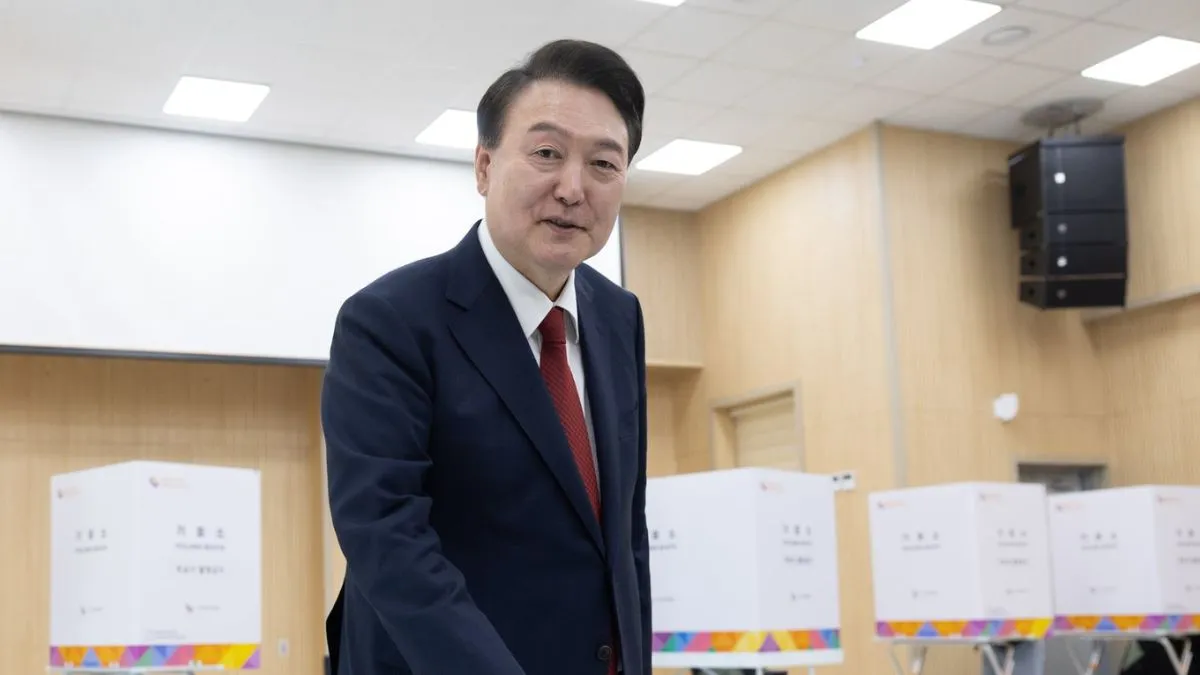
In a November survey, 58% of South Koreans said they wanted President Yoon to resign or be impeached. In addition, a growing number of opposition politicians have begun calling for President Yoon’s impeachment in the National Assembly, which is controlled by the opposition Democratic Party (DP).
Video Player is loading.
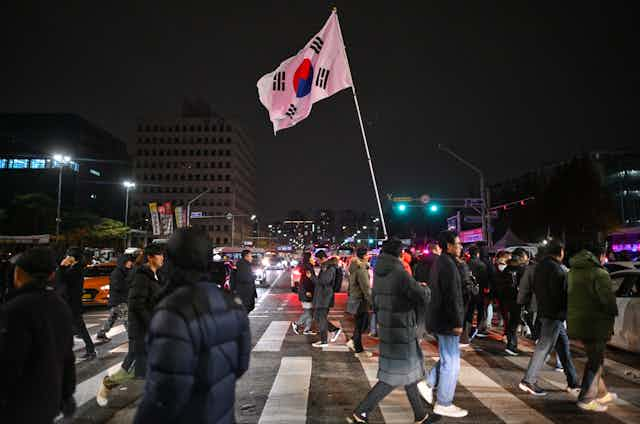
Leader of the opposition Democratic Party of Korea Lee Jae-myung climbed over the wall to enter the National Assembly on December 3. Video: Youtube/이재명tv
“In President Yoon’s view, the ongoing political turmoil is the result of an opposition-led campaign to undermine the government,” said Park of the Quincy Institute. “Concerned that his power is increasingly threatened and that he needs to take decisive action, he has resorted to martial law, which would suspend parliament and prohibit political gatherings that could cause ‘social disorder.’”
In his speech declaring martial law, President Yoon criticized the actions of the parliament dominated by the center-left opposition Democratic Party for weakening his ability to govern the country.
![]()
Since parliamentary elections held earlier this year that gave the opposition a majority, President Yoon’s power has been effectively locked in place. He cannot pass the laws he wants, and instead has to veto bills passed by the opposition. This is what he seems to have meant when he said the opposition has “paralyzed the country.”
“President Yoon is certainly not trusted and is frustrated that his hands are tied in political decisions,” said Celeste Arrington, director of the George Washington Institute for Korean Studies.
“He has had to use his presidential veto power with unprecedented frequency” to try to push his agenda forward, Arrington said. “Meanwhile, the opposition has ratcheted up the pressure by trying to impeach dozens of senior administration officials and launching investigations into the first lady. The political battle is on and escalating.”

In recent weeks, President Yoon’s conservative PPP has been locked in a stalemate with the Democratic Party over next year’s budget bill. At the same time, the opposition has moved to impeach three top prosecutors, which the president says is retaliation for the criminal investigation into Lee Jae-myung, who narrowly lost to him in the 2022 election but is seen as the frontrunner to win the next election in 2027.
President Yoon has recently lost public support for his tough stance on unions, as well as a strike by resident doctors in protest of his major health care reform plan, which would add 2,000 medical students a year to make up for the country’s severe shortage of doctors.

Troops try to enter the main hall of the National Assembly in Seoul on December 3 after President Yoon declared martial law. Photo: AFP
The government says increasing medical school enrollment is necessary because South Korea has the lowest doctor-to-population ratio among developed countries. President Yoon’s plan is expected to improve medical services in remote areas and meet the needs of the country’s rapidly aging population.

But contrary to the government’s view, resident doctors say the country does not need more doctors because it already has enough, and that changing the policy would reduce the quality of national healthcare, arguing that the population is declining and South Koreans have easy access to medical services.
A martial law decree issued on December 3 requires striking doctors to return to work within 48 hours or face sanctions under military law.
President Yoon’s handling of the scandals and the doctors’ strike led to a rift with PPP Chairman Han Dong-hoon, his former confidant.
Mr. Han and the PPP are among those who have strongly called on President Yoon to lift martial law.

Democratic Party leader Lee Jae-myung (center) speaks to the media at the National Assembly in Seoul on the morning of December 4. Photo: AFP
Faced with the surrounding crises, the Blue House chief has sought a solution that analysts call the “nuclear option”, despite the consequences that martial law could cause to South Korea’s political, social and economic life.
Immediately after the President declared martial law, the South Korean won lost 2.5% of its value against the US dollar, reaching its lowest level since 2016. Major indexes in the South Korean stock market also fell as soon as they opened on December 4, even though martial law had been lifted.
![]()
Sung-min Cho, a political science professor at Sungkyunkwan University in Seoul, said the fact that South Korean lawmakers quickly convened to pass a resolution opposing martial law, forcing the president to lift it six hours after its declaration, showed the resilience of the country’s democracy.
In a post on X, Professor Cho commented that the National Assembly’s vote to lift martial law showed that South Korea’s system of checks and balances on power was working, despite President Yoon’s shocking decision.
“It was the democratic system that restrained his wrong decision,” Cho stressed.
